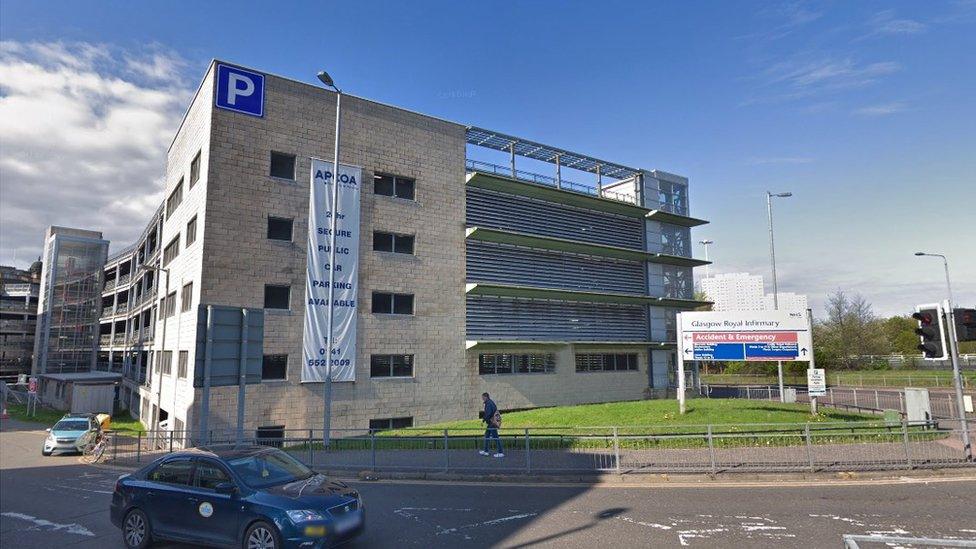Free parking at three hospitals gets further extension
- Published

The car park at Glasgow Royal Infirmary is one of three built under PFI deals
Free parking at three of Scotland's major hospitals will remain in place until further notice.
Charges at Ninewells Hospital in Dundee, Glasgow Royal Infirmary and Edinburgh Royal Infirmary were initially suspended last March.
The aim was to ensure staff caring for patients during the Covid pandemic would not have to pay to park.
The scheme has now been further extended by the car park providers.
Parking fees at the rest of Scotland's hospitals were scrapped in 2008.
But payment was still required at the remaining three as they are run by private operators.
The car parks were built under long-term private finance initiative (PFI) projects.
Health Secretary Jeane Freeman confirmed the operators had agreed to continue scrapping charges for staff, visitors and patients.
She said: "As we continue to deal with the Covid-19 pandemic, I'm pleased to confirm that these free car parking arrangements will remain in place to help those who use and work for our NHS, and I am confident in our progress towards a long term solution on the issue of car parking charges."
Edinburgh Royal Infirmary was built through the PFI initiative
What is PFI?
Governments and local authorities have always paid private contractors to build roads, schools, prisons and hospitals out of tax money.
But in 1992, the UK government hit on a way of getting the contractors to foot the bill.
Under PFI, contractors pay for the construction costs and then rent the finished project back to the public sector.
This allows the government to get new hospitals, schools and prisons without raising taxes.
The contractor, for its part, is allowed to keep any cash left over from the design and construction process, in addition to the "rent" money.
However, critics say that the government is just mortgaging the future - and the long-run cost of paying the private sector to run these schemes is more than it would cost the public sector to build them itself.